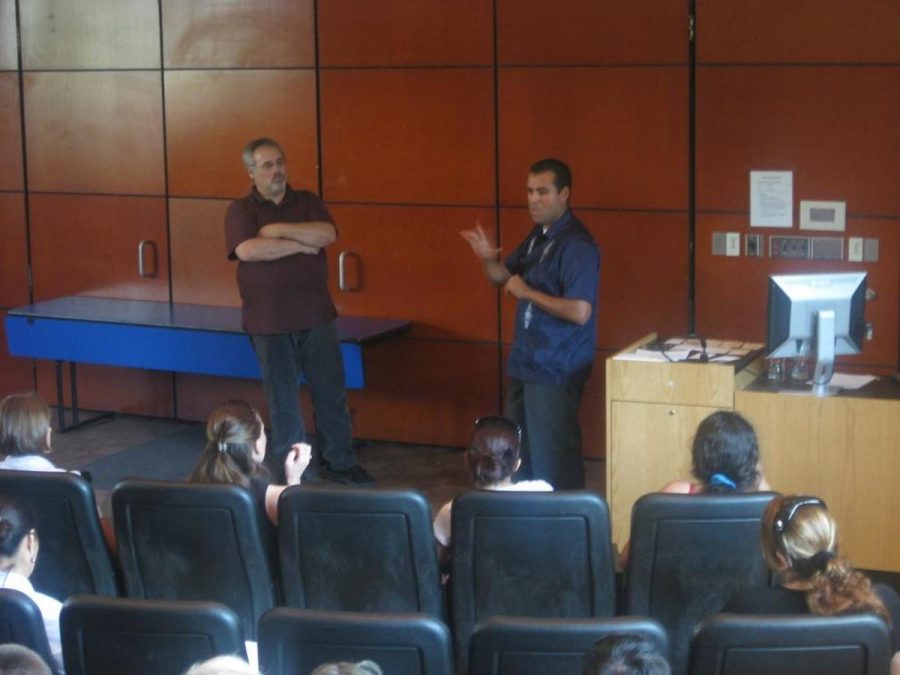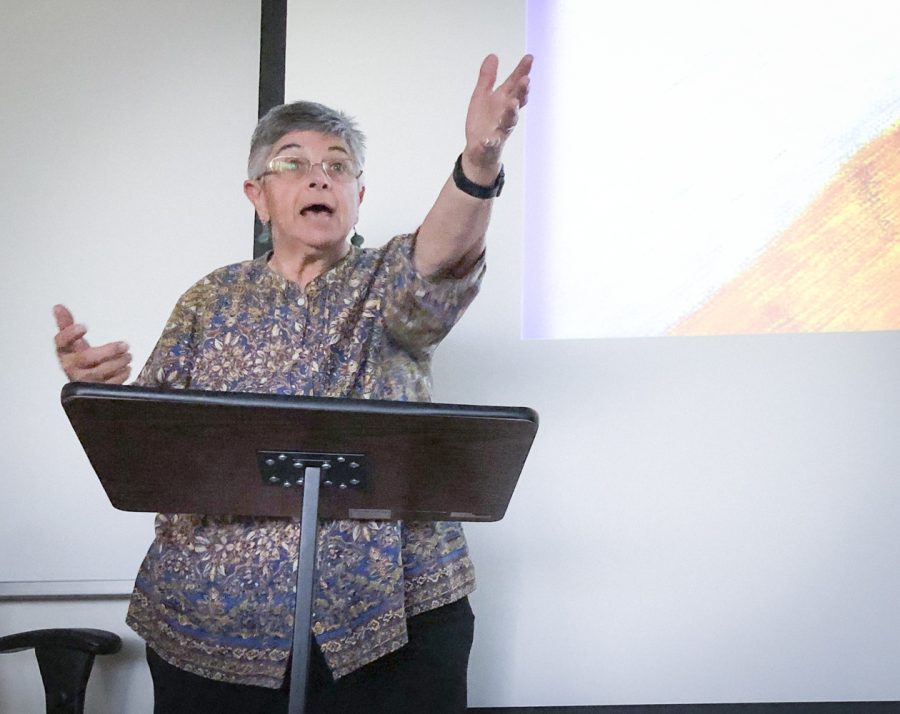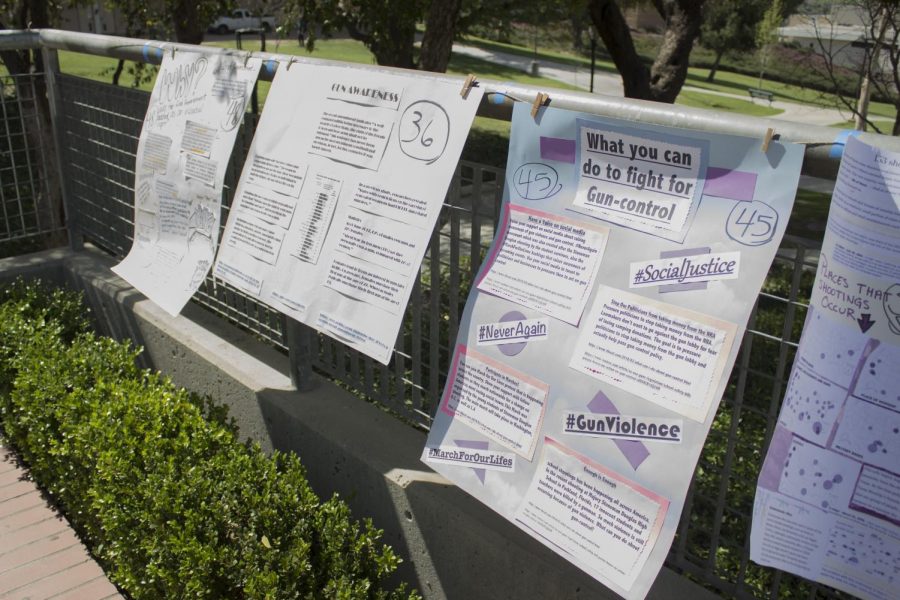“Communities should build awareness and resources for the Chicano Deaf Cultures from all over the world,” signed Joel A. Garcia to Oxnard College students and members of the community on Wednesday as part of his presentation.
Garcia is a Gallaudet University alumni who communicated to his audience through American Sign Language (ASL) his life story, challenges of the hearing impaired and lack of public services.
Kim Johnson, ASL Interpreter and Doug Singleton, Deaf Services Specialist assisted Garcia in interpreting his lecture.
“My Way – the Deaf Way: Education from a Deaf Perspective,” was the title of the lecture for this event that was part of the Oxnard College Literature, Arts and Lecture Series on Sept. 22.
His presentation illuminated a lucid depiction of his personal experiences as a deaf Chicano with a hunger for perseverance.
“I believe it’s important for people to understand the Chicano deaf culture,” said Garcia through sign language. “We are suffering in the barrios and struggling with our lives, communication, and identity.”
Raised by a single mother who emigrated from Mexico, Garcia had a difficult time learning to communicate with his family. His mother created homemade signals that were basic in nature in order to provide him with a mode of exchange. Still, his family did not know about ASL and this only made him feel out of place within his own family.
“By being at Gallaudet, I learned to embrace and understand my culture,” explained Garcia. “My mentors helped me find my identity and for the first time, I finally felt at home.”
As a child, Garcia was a troublemaker who had no interest in his education or his future. He emphasized on being confused about his cultural identity as a Chicano deaf man.
In his lecture, he wanted to focus on gender roles, life experiences, future goals, issues of hearing parents, education, the deaf culture and discrimination.
One of the reasons behind this lecture is due to the fact that “hearing parents” often feel punished for having a deaf child and that religion plays an enormous role in these beliefs. Garcia feels that this is due to the lack of education of many Chicano parents.
“I think that having a deaf child in your family helps you see beyond yourself,” said Singleton. “Parents expect normal children, but once you get pass that thought, you will see that your child will succeed just as much as a normal child would.”
Shelley Savren, English professor and coordinator for this event felt this was an important issue to address.
“I think people need to be aware of the challenges of being deaf,” said Savren. “If we can rise above all things, educate ourselves and learn that this is not a disability – [it’s a culture] then we would be helping tremendously.”
Alicia Maldonado, a 24-year-old psychology major, was among the many people that attended the lecture.
“People often discriminate when they see someone who is different,” expressed Maldonado. “I personally am fortunate to welcome the differences and learn from people like Joel.”
The presentation concluded with Garcia’s advice, “Si, Se Puede!” which was coined by Cesar Chavez. He urged everyone to be open-minded, promote research and encourage deaf children to be leaders in their communities.
The next lecture from the Literature, Arts and Lecture Series will be “The Braceros of Ventura County” and will be held on Sept. 29 in LS-8. The lecture is from 12:45 p.m. to 1:45p.m. and is free of charge.
For more information on the series please contact Shelley Savren at [email protected] or (805) 986 – 5800 ext. 1951






